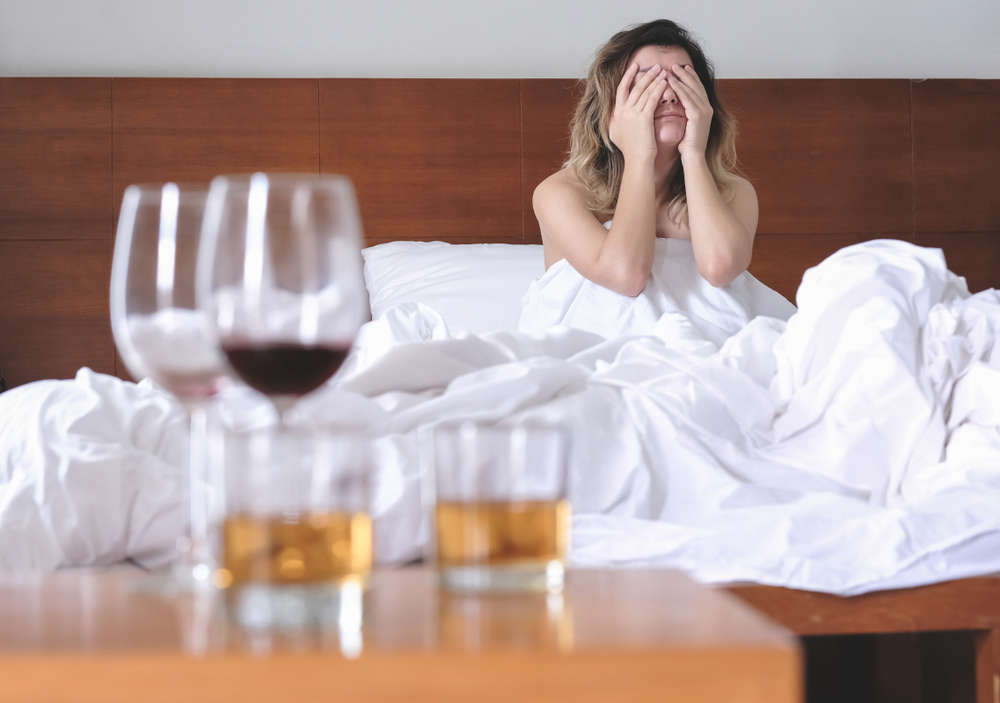
If you cracked open a few more beers and popped several more wine corks than you normally would during lockdown, you’re not alone.
New research has suggested that our alcohol habits changed during the pandemic – with more at-home and late-evening boozing than before.
The study, by the University of Glasgow and University of Sheffield, analysed data on almost 300,000 adults in England and Scotland, measuring the impact of Covid-19 restrictions in 2020 on drinking habits.
So, if you took to drinking more at home during lockdown, and those habits have continued since, should you be worried? Here are some signs to look out for…
1. ‘Wine-o-clock’ is getting earlier

Dr Niall Campbell, a consultant psychiatrist who specialises in alcohol addiction for Priory says:
“Bringing forward the evening drink earlier and earlier in the day, so you are now drinking for longer in the day, and night, and drinking more (is an issue).”
2. There’s more wine in your shopping basket than there used to be
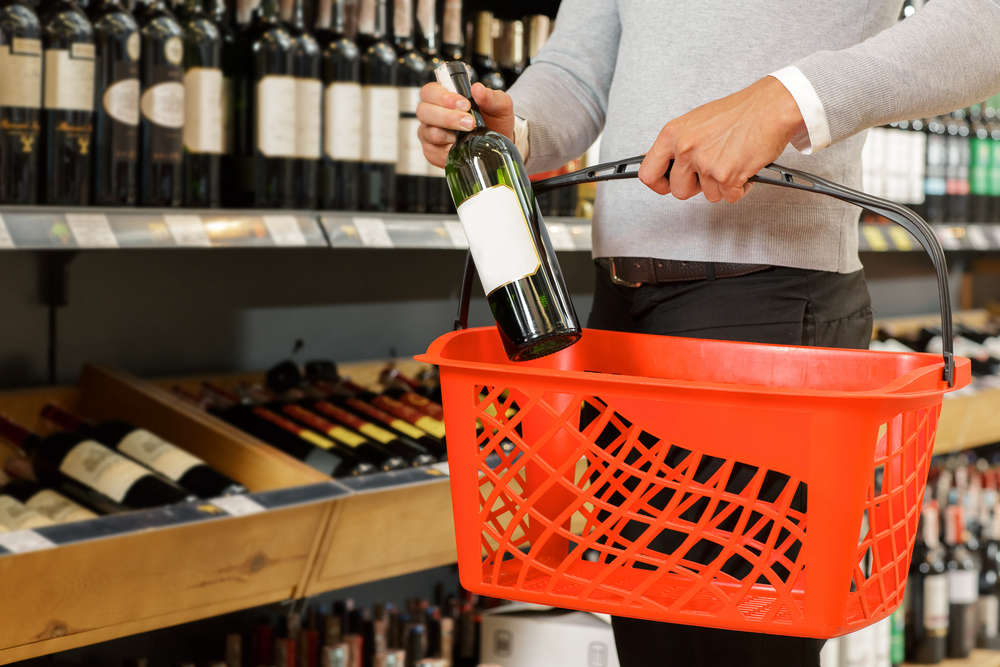
Adding more alcohol to your weekly shop – two boxes of wine, where you used to buy one, or six bottles rather than a couple – is something to be wary of, says Campbell.
3. Becoming secretive about your drinking
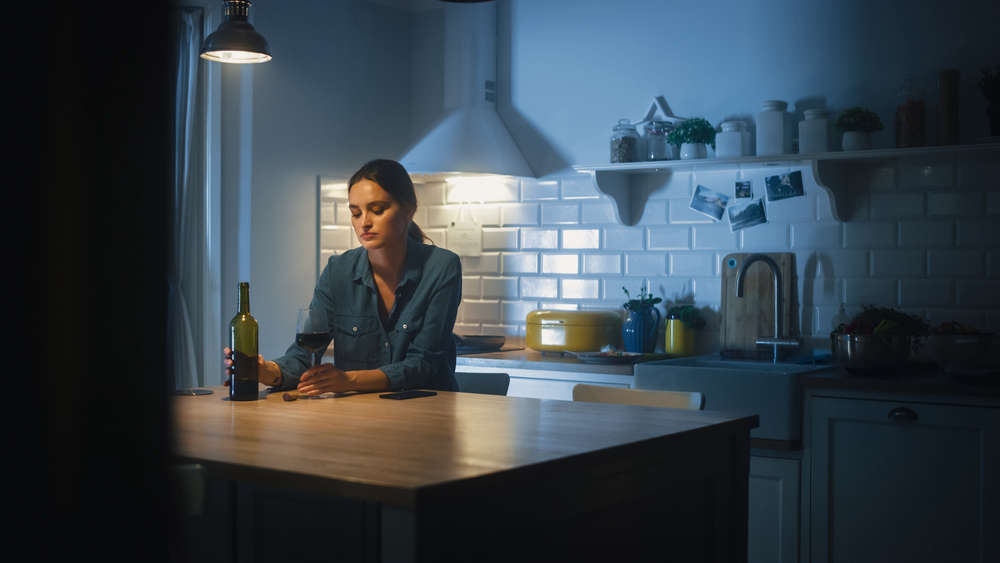
A worrying sign for any addiction, hiding the whole picture from your partner or family is a tell-tale sign something isn’t right.
“[Watch out for] drinking ‘secretly’ so other members of your family don’t see – outside the supermarket, or on a bench – and hiding the evidence,” says Campbell.
For example, this might mean hiding the bottles or receipts. “Also, storing alcohol in strange places, such as behind books on a shelf or in the garage or boot of the car.”
4. You find yourself thinking about whether there is enough alcohol in the house
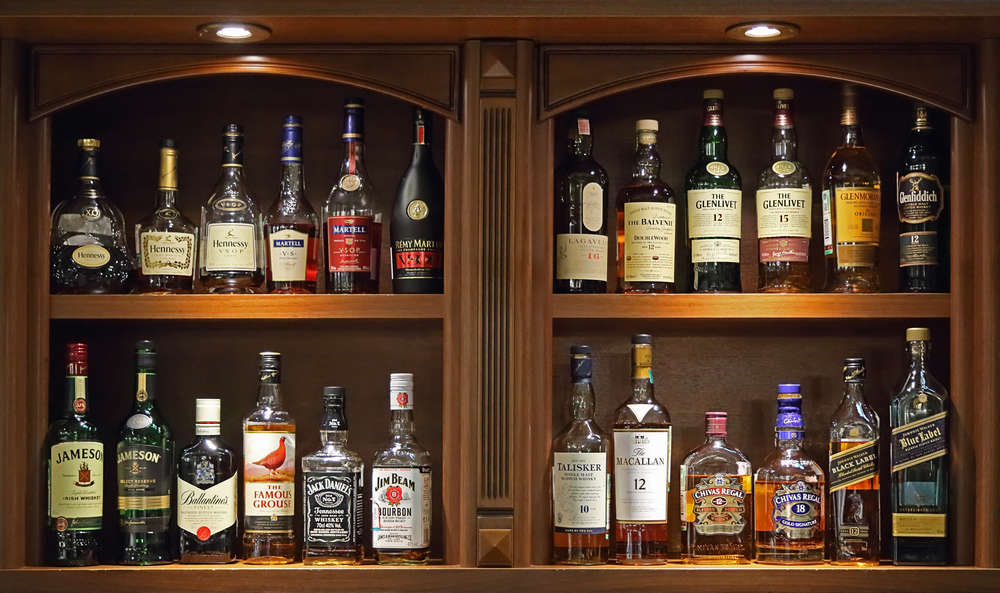
If you find yourself worrying that you’ve run out of booze, or that their isn’t enough, or wondering how you’re going to get more, this is a worrying sign, notes Campbell.
5. Having a drink at home as a regular ‘reward’ at the end of a stressful day

Feeling that alcohol is your go-to source of “stress-relief at home” could be an issue, says Campbell. As is feeling like you have to justify it.
Preston says:
“If someone justifies drinking as a way of unwinding after work, a busy day with the kids, or as a reward, and denies they are an alcoholic because they still hold down a job or take the kids to school on time, these are signs that alcohol has become a problem.”
Other broader signs to watch out for are: getting angry or frustrated if friends comment on how much you drink; finding that your alcohol tolerance is increasing, and noticing your sleep is regularly disrupted when you drink.
If you’re at all worried about your alcohol consumption, speak to your GP or specialist clinic.

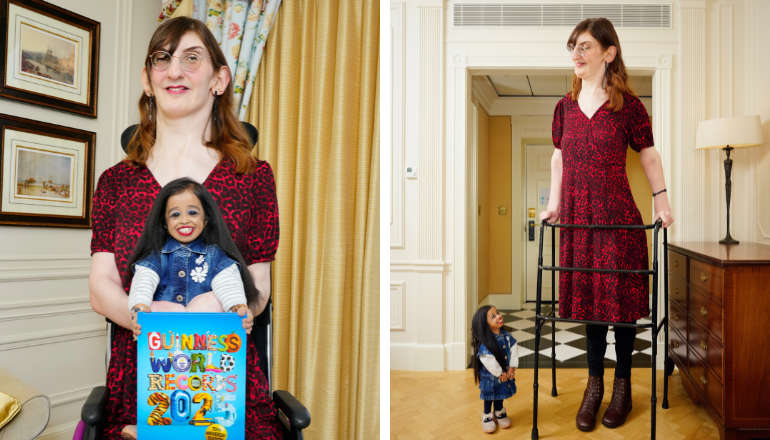 World's Tallest And Shortest Women Meet For First Time To Celebrate Guinness World Records Day 2024
World's Tallest And Shortest Women Meet For First Time To Celebrate Guinness World Records Day 2024
 Shannen Doherty: Beverly Hills, 90210 Star Dies Aged 53
Shannen Doherty: Beverly Hills, 90210 Star Dies Aged 53
 Olivia Dean, Chaka Khan, Terence Trent D’Arby And Dionne Warwick Confirmed For Star-Studded Love Supreme
Olivia Dean, Chaka Khan, Terence Trent D’Arby And Dionne Warwick Confirmed For Star-Studded Love Supreme
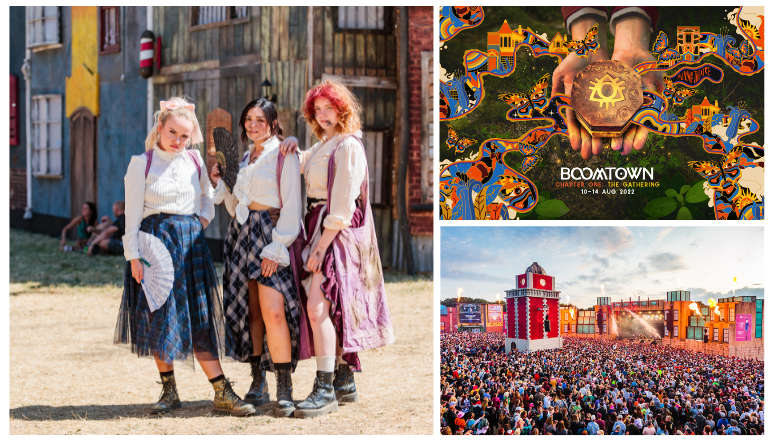 Boom Shakes The Room — Explosion of Colour And Happy Vibes At Spellbinding Gathering
Boom Shakes The Room — Explosion of Colour And Happy Vibes At Spellbinding Gathering
 Struggling To Sleep? New Research Names The Movies That Will Help
Struggling To Sleep? New Research Names The Movies That Will Help
Comments
Add a comment